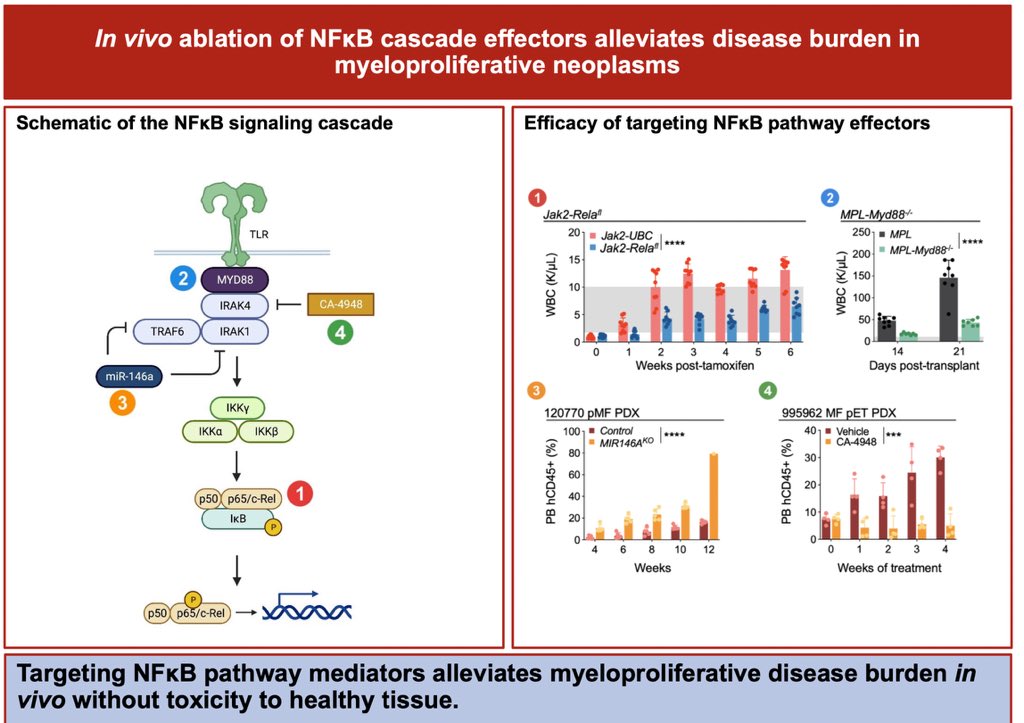Study in Blood dissecting the role of NFκB signaling effectors in MPN disease biology
Stephen T. Oh, MD, PhD, Co-Chief and Associate Professor of Medicine, Division of Hematology, Department of Medicine, Washington University School of Medicine in St. Louis, and has been published in Blood.

The WashU group of researchers previously identified hyperactivation of NFκB pathway signaling in myeloproliferative neoplasms (MPNs). In this study we utilized genetic and pharmacologic approaches to comprehensively dissect the role of NFκB signaling components in MPN disease development.
Through these efforts the group found that abrogation of multiple different NFκB effectors consistently ameliorated MPN disease features including leukocytosis, splenomegaly, and bone marrow fibrosis. These findings highlight potential avenues for novel therapeutic approaches for MPN patients.

This study provides clear evidence of the essentiality of NFκB pathway signaling in MPN disease pathogenesis, and I am very excited about the potential for translation of these concepts to the clinic
Stephen T. Oh, MD, PhD
Also involved in the research are Angelo Brunelli Albertoni Laranjeira, Tim Kong, Steven C. Snyder, Mary C. Fulbright, Daniel A.C. Fisher, from WashU and Daniel T. Starczynowski from Cincinnati Children’s Hospital Medical Center.